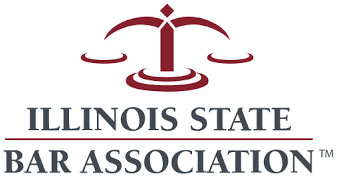Wheaton, IL Paternity Lawyer

Attorney for Establishing Legal Parentage and Parental Rights in DuPage County
Under Illinois law, a child's parents have certain rights and responsibilities, including the responsibility to support the child financially. However, it is not always clear when a child is born who the legal parents are, especially if the parents are not married. In these cases, it is necessary to take additional steps to establish legal parentage in order to secure important benefits for both the child and the parents.
Working with an experienced family law attorney can help you address the legal challenges that may arise as you attempt to establish your child's paternity. Attorney Jessica Sendek has represented clients in parentage cases and other family law matters for over 10 years, and she understands the personal attention and care that these cases require. She will work to help you reach a resolution that can lead to a better future for your child.
How is Parentage Established in Illinois?
Establishing a woman's legal parentage of a child in Illinois is relatively straightforward whether or not she is married, as it is generally based upon the woman giving birth to the child. However, establishing a man's parentage can be more complicated, depending on the circumstances. A man who is married to the child's mother when the child is born is presumed to be the legal father of the child, as is a man whose marriage to the mother ended, whether due to death, divorce, or another reason, within 300 days prior to the child's birth. A man who marries the mother after the child's birth can also be recognized as the legal father if he consents to be named as such on the birth certificate.
Under any other circumstances, legal paternity will not be presumed, and one or both parents will need to take further action to establish the man's parentage. One common method of establishing paternity in Illinois is a Voluntary Acknowledgment of Paternity, or VAP. Parents can sign a VAP at any time after the child's birth, including at the hospital when the child is born, but it must be signed willingly by both parents in order to take effect. If another man is presumed to be the father according to one of the criteria mentioned above, he will need to sign a denial of parentage to submit along with the VAP.
If there are questions or disagreements regarding the child's biological paternity, a VAP is likely not the best option. Instead, either the mother or the alleged father may petition for adjudication of paternity through the court system. Often, the adjudication process involves court-ordered genetic testing of the alleged father, and if the court determines based on the test results or other relevant evidence that the man is likely to be the child's father, it will issue a judgment establishing legal paternity.
Results of Establishing Paternity
Establishing paternity gives the father the legal standing to pursue parental rights, including parenting time and parental responsibilities. The court will consider the best interests of the child in making a determination about parental responsibilities and parenting time for each party. However, with the establishment of paternity also comes the obligation to provide financial support for the child. The court will order the legal father to pay child support, with the amount calculated based upon the same statutory guidelines that are used during a divorce or legal separation.
Contact a Warrenville Parentage Attorney
Whether you are the mother or alleged father of a child, we can help you understand your rights and the implications of establishing legal parentage in your case. Contact us for a free consultation at 630-358-9029. We provide legal counsel and representation for clients in DuPage County, Cook County, Will County, Kane County, Wheaton, Winfield, Warrenville, Naperville, West Chicago, Lombard, Lisle, Glen Ellyn, and the surrounding areas.
















